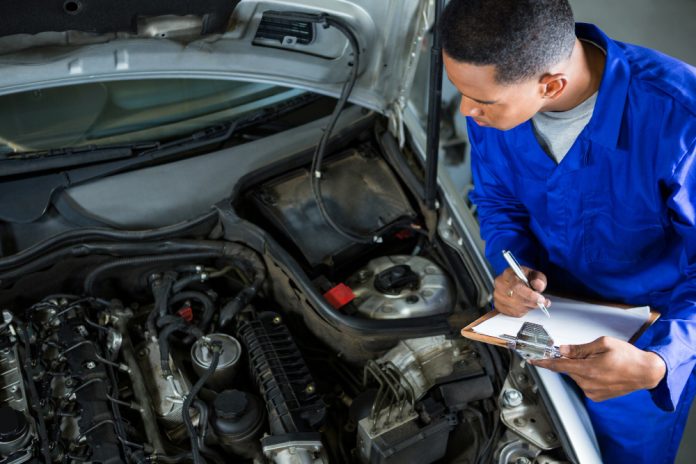Imagine cruising down the highway, music on, air conditioner humming, when suddenly your car’s engine light flickers on. You ignore it for a while, but soon, the ride doesn’t feel as smooth as before. What many car owners don’t realize is that something as simple as a regular car oil change can make the difference between a smooth drive and an expensive repair. Clean oil keeps your engine lubricated, reduces wear, and enhances fuel efficiency. Neglecting it, however, can cause the oil to degrade, leading to increased friction and potential engine damage.
When it comes to maintaining your car’s performance, an oil change isn’t optional—it’s essential. In this blog, we’ll guide you through everything you need to know about car oil changes, from understanding why they matter to the best practices for keeping your engine in top shape. You’ll also discover why Crossroads Helpline is the perfect partner to keep your vehicle healthy and reliable. Ready to get started? Let’s dive in!
Things to Know Before a Car Oil Change
Before you schedule your next car oil change, there are several key aspects to understand that ensure your vehicle gets the best care possible. From the type of oil to the frequency of changes, these details can help you make informed maintenance decisions that extend your car’s life and performance.
1. Understanding the Importance of Oil Viscosity
Oil viscosity refers to the oil’s resistance to flow, determining how well it can protect your engine under different temperatures. A higher viscosity provides better protection at high temperatures, while lower viscosity oils flow more easily in cold conditions. Choosing the correct viscosity grade ensures your engine operates efficiently, minimizing wear and tear.
Manufacturers often recommend specific viscosity grades like 5W-30 or 10W-40 for their engines. Following these recommendations maintains optimal lubrication and improves engine efficiency. Always check your car’s manual or consult a professional service like Crossroads Helpline to ensure you’re using the correct oil type for your vehicle.
2. Conventional vs. Synthetic Oil
There are primarily two types of engine oils—conventional and synthetic. Conventional oil is derived from crude petroleum and is suitable for older or low-performance engines. Synthetic oil, on the other hand, is chemically engineered to perform better under extreme temperatures and provides superior engine protection.
Synthetic oils also last longer and resist sludge buildup, which means fewer oil changes over time. While they may cost more upfront, their extended lifespan and protection often make them a cost-effective choice in the long run. Crossroads Helpline technicians can help you decide which type is ideal for your driving conditions and vehicle model.
3. How Often Should You Change Your Oil?
The traditional rule of thumb was every 3,000 miles or every three months. However, with advancements in engine technology and oil quality, most modern vehicles can go 5,000 to 7,500 miles between oil changes. Some high-end synthetic oils can even last up to 10,000 miles.
Still, it’s essential to consult your owner’s manual or your service provider. Factors such as driving habits, climate, and vehicle age influence how often you should change your oil. Crossroads Helpline offers personalized maintenance schedules tailored to your car’s specific needs to ensure peak performance.
4. The Role of Oil Filters
Your car’s oil filter plays a critical role in keeping contaminants out of your engine. As oil circulates, it collects dirt, metal particles, and carbon deposits. The oil filter traps these impurities, preventing them from circulating back into the engine.
During every oil change, the oil filter must be replaced to maintain clean oil flow. Neglecting this step can cause blockages, reduced lubrication, and ultimately engine damage. Crossroads Helpline’s technicians always ensure both oil and filter replacements are part of your routine service for maximum engine health.
5. Environmental Impact of Used Oil Disposal
Used engine oil contains harmful contaminants that can pollute soil and water sources if not disposed of properly. Responsible disposal ensures both safety and environmental sustainability. Crossroads Helpline adheres to eco-friendly disposal standards, ensuring all waste oil and filters are recycled or treated safely.
By choosing an environmentally conscious service, you’re not only maintaining your car but also contributing to a cleaner planet. Always make sure your auto service center follows proper disposal methods, reinforcing your commitment to responsible vehicle care.
Top Tips for an Effective Car Oil Change
Knowing the basics is essential, but applying the right techniques ensures your car oil change delivers lasting results. Here are the top practices to follow for the best outcomes.
1. Always Warm Up the Engine First
Before draining the old oil, warm up the engine for a few minutes. Warm oil flows more freely, allowing for a more complete drainage of the old, dirty oil. This ensures that fewer contaminants remain inside the engine.
A slightly warm engine helps dissolve any sludge or residue, promoting better overall cleaning during the oil change process. However, avoid overheating—the engine should be warm, not hot, to prevent burns or damage.
2. Use the Correct Tools and Equipment
A successful oil change requires the right tools, including a wrench, oil catch pan, funnel, and safety gloves. Using improper tools can cause oil leaks, stripped bolts, or even damage to your oil pan.
At Crossroads Helpline, all oil change services are carried out with professional-grade equipment, ensuring accuracy, safety, and speed. This precision minimizes risks and keeps your car performing efficiently.
3. Check for Leaks After Every Oil Change
After completing the oil change, it’s vital to inspect your car for any potential leaks. Even a small leak can lead to gradual oil loss, risking engine performance and longevity.
Crossroads Helpline performs a detailed inspection after every oil change, ensuring seals and filters are properly secured. Regular checks prevent future issues and give you peace of mind on the road.
4. Keep a Record of Every Oil Change
Maintaining a service record helps track your car’s maintenance history, aiding in future diagnostics or resale value. Keeping receipts and noting the type of oil used ensures consistency and transparency.
When you service your vehicle at Crossroads Helpline, all maintenance records are digitally stored and accessible. This simplifies your maintenance schedule and helps plan timely oil changes.
5. Don’t Forget to Reset the Oil Change Indicator
Modern cars often feature an oil change reminder system. After each service, it’s important to reset this indicator to accurately track future maintenance intervals.
Neglecting to reset it can cause confusion, leading to missed or premature oil changes. Crossroads Helpline ensures this step is completed, helping you stay on track with your car’s maintenance cycle.
Why Choose Crossroads Helpline for Your Car Oil Change
Crossroads Helpline isn’t just another auto service provider—it’s your car’s best friend. With a team of certified technicians, state-of-the-art facilities, and a commitment to customer satisfaction, they provide comprehensive oil change services that go beyond the basics. Their expertise ensures your engine gets the right oil, filter, and care every single time.
What sets Crossroads Helpline apart is their dedication to transparency, reliability, and eco-friendly practices. They not only help you maintain your vehicle’s performance but also prioritize sustainability and affordability. From routine maintenance to emergency roadside assistance, Crossroads Helpline is your trusted partner in keeping your car safe, efficient, and road-ready.
Conclusion
Regular oil changes are one of the simplest yet most impactful ways to keep your vehicle healthy. By understanding the importance of oil type, viscosity, and maintenance intervals, you can extend your engine’s life and enhance performance. Whether you drive occasionally or clock in long miles daily, staying proactive with oil maintenance prevents costly breakdowns and ensures smoother rides.
If you’re looking for a dependable partner to handle your car maintenance with professionalism and care, Crossroads Helpline is the answer. With their expert technicians and customer-first approach, you can trust that your car oil change will always be done right. Visit Crossroads Helpline today and experience top-tier automotive care designed for your peace of mind.





